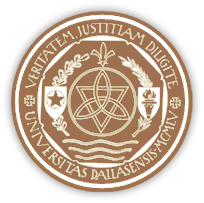Ramify Volume 9.1 was produced during the height of the COVID-19 pandemic: a time of distance, isolation, and profound reflection on one’s self, relationships and obligations to society. It is in these moments of crisis—both personal and communal—that the teachings of the Western intellectual tradition to which Ramify is dedicated make their most meaningful contributions. By engaging the individual in a dialogue that spans millennia and traverses continents, this tradition invites connection to those who seek to know and express truth, wherever and whenever they live. In reminding our pluralistic communities of their shared roots and recalling each person to carry forward the common quest for meaning and goodness, this tradition offers a panacea for our current spiritual afflictions.
Although the papers published in this volume were not written to address the pandemic, they are nevertheless powerful examples of the ways in which intellectual inquiry and creativity can offer enlightenment and comfort to all.
Elisa Torres begins this issue by investigating the distinction between the political and the private in Machiavelli’s Mandragola. By analyzing the rupture of several private relationships in the play, Torres divines nuance in Machiavelli’s emerging morality and its implications for the public sphere. Far from evoking man to depraved acts, Torres argues that Machiavelli has established a morality of necessity that suspends and extends private ambition in pursuit of the political good.
Alex Taylor offers this issue’s only piece of poetic fiction. His odes are tantalizingly presented as the recently recovered love songs of Adeodatus, natural son of St. Augustine. Through the framework of his Oxfordian translator, Taylor situates his readers within a community of those who long for a more intimate understanding of the historical personages that so concern our intellectual occupations, while acknowledging the veil of time that both inspires and frustrates our endeavors. His poetry delights the senses and the spirit in its yearning for transcendence: from the self to the beloved, and perhaps from the mortal to the divine.
Matthew Wilde also writes about the possibility of transcendence in relation to one’s beloved. His essay on Dante’s Divine Comedy highlights a previously unexplored connection between the character of Dante and his beloved Beatrice. By examining the tension between the erotic and maternal imagery used to depict this relationship, Wilde directs his readers to grasp Dante’s reimagining of the Italian troubadour tradition and its implications for the transformation of the pilgrim’s heart in the Paradiso. Far from looking beyond Beatrice to the Beatific Vision, Wilde suggests that Beatrice’s maternal care for Dante helps fulfill the pilgrim’s eros through a shared vision of God.
Alasdair MacIntyre’s contemporary recovery of Aristotelian virtue ethics stands in contrast to the fragmentation of meaning and the rise of emotivist morality with which he diagnosed modernity. In her contribution to this issue, Kim Rice explores MacIntyre’s use of narrative form as a method for integrating human lives. Her work exemplifies this interdisciplinary philosophical project through an analysis of two novels representing stages in the transformation of the Western moral perspective: Jane Austen’s Mansfield Park and E.M. Forster’s A Room with a View.
Jameson Cockerell concludes this issue with an investigation of the relationship between self and memory in Augustine’s Confessions. The act of recollection serves Cockerell as a hermeneutical tool which manifests an understanding of the self, replete not only with a contextualization of one’s past and present, but also with an orientation toward future possibilities. Set in dialogue with Nietzsche’s doubts about the truthfulness of recollected self-knowledge, Cockerell explores the act of confession as a restorative dialogue with God that displaces the self and thereby reveals it to the confessor.
The articles collected here offer readers abundant opportunity for reflection: on our natures, the objects of our desires, on our communities and on the ideas and thinkers that have shaped our collective lives. We publish them in hopes of offering a small, but valuable, contribution to a tradition of inquiry of perennial benefit to human being.
For the Editors,
Daniel Steele
Editor In Chief
August 25, 2021

